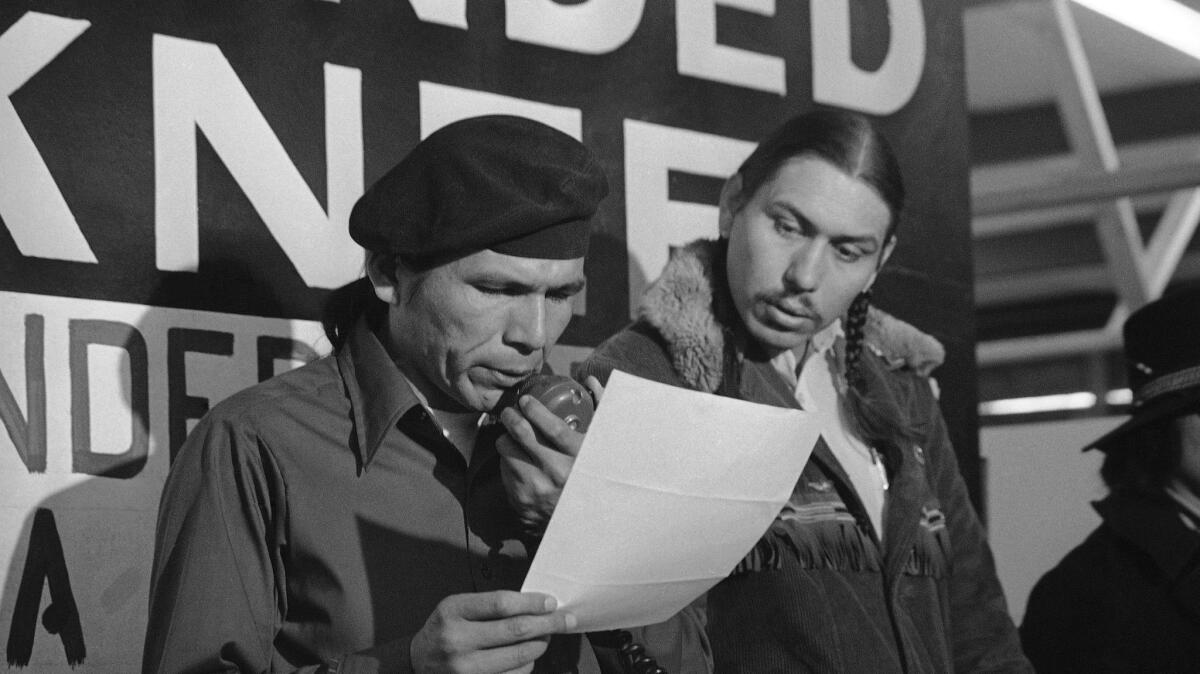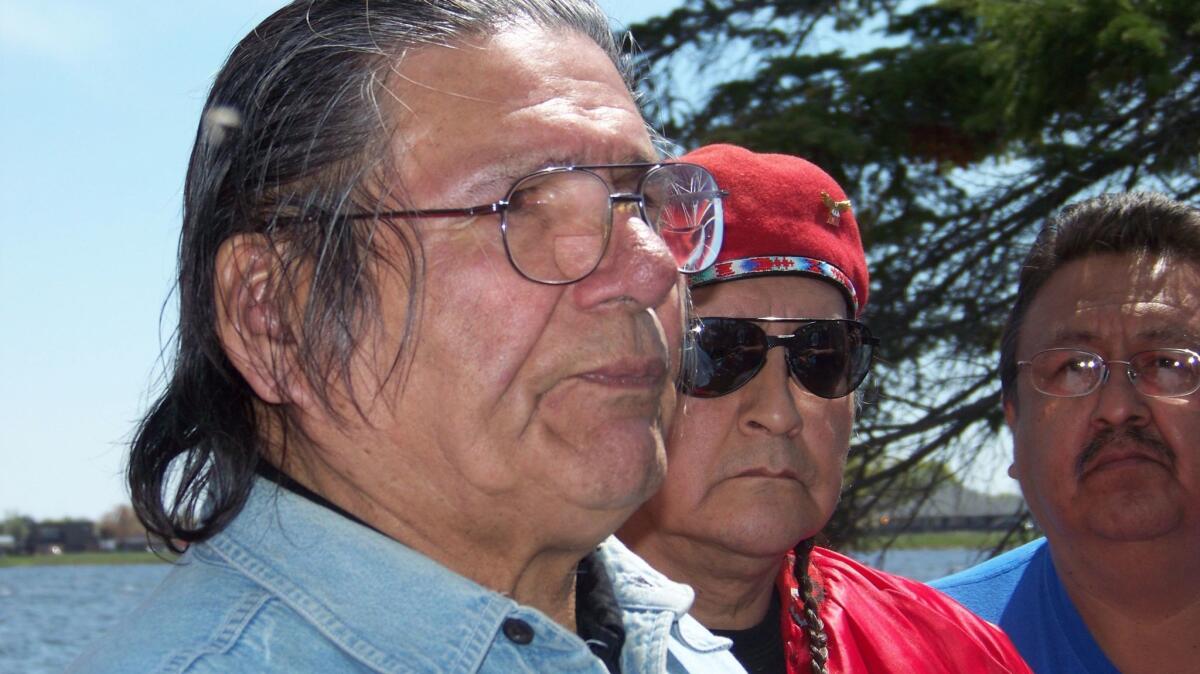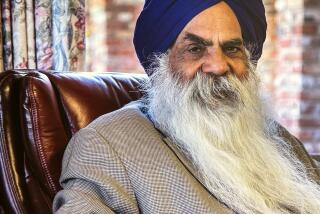Dennis Banks, American Indian activist who helped lead Wounded Knee occupation, dies at 80

Dennis Banks, a co-founder of the American Indian Movement and a leader of the 1973 Wounded Knee occupation, has died, his family said Monday. He was 80.
Banks was one of several activists who founded the American Indian Movement in Minneapolis in 1968, and he was a leader of AIMâs armed takeover of Wounded Knee on the Pine Ridge Reservation in South Dakota in 1973, in a protest against both the tribal and U.S. governments.
The village had been the site of a massacre by U.S. soldiers in 1890 that left an estimated 300 Indians dead.
The occupiers held federal agents at bay for 71 days.
Banks died Sunday night at the Mayo Clinic in Rochester, Minn., his family said. He had developed pneumonia following heart surgery, and his family said they honored his wishes not to be put on life support.
âDennis Banks is somebody who had an indelible impact on history, not just in our native community but throughout our country,â said Anton Treuer, a professor of the Ojibwe language at Bemidji State University, citing how he demanded that the powerful take notice of American Indian concerns. âHe was someone who was both loved and hated â depending on what circle youâre looking at.â
Banks, whose Ojibwe name was Nowacumig, lived near the town of Federal Dam on the Leech Lake Reservation in northern Minnesota. His family said that as Banks took his last breaths, son Minoh Banks sang him four songs for his journey.
âAll the family who were present prayed over him and said our individual goodbyes,â the family said. âThen we proudly sang him the AIM song as his final sendoff.â

Banks and fellow AIM leader Russell Means faced charges stemming from the Wounded Knee occupation, but a judge threw out the case. However, Banks spent 18 months in prison in the 1980s after being convicted for rioting and assault in a protest in Custer, S.D., earlier in 1973. He avoided prosecution on those charges for several years after California Gov. Jerry Brown refused to extradite him, and the Onondaga Nation in New York gave him sanctuary.
Banks was part of a group of AIM supporters who returned to Wounded Knee in 2003 to mark the 30th anniversary of the standoff, in which two Native Americans died. Banks paid tribute to them as âwarriorsâ and declared it âa national holiday.â He was also there in 1998 for the 25th anniversary.
Banks also helped lead a takeover of the Bureau of Indian Affairs offices in Washington, D.C., in 1972 as part of a protest dubbed the âTrail of Broken Treaties.â And he was a participant in the 1969-71 occupation by Native Americans of Alcatraz Island, the site of the former prison in San Francisco Bay.
He returned to the Leech Lake Reservation in the late 1990s and founded a company that sold wild rice and maple syrup, trading on his famous name.
In 2010, Banks joined several other Ojibwe from the Leech Lake and White Earth bands who tested their rights under an 1855 treaty by setting out nets illegally on Lake Bemidji a day before Minnesotaâs fishing season opener. He also went to the Standing Rock Reservation in North Dakota to join last yearâs protests of the Dakota Access oil pipeline.
The Banks family said he would be buried with traditional services in his home community of Leech Lake. He is survived by 20 children and more than 100 grandchildren, his daughter, Tashina Banks Rama, said.
MORE RECENT OBITUARIES:
Jane Juska, who wrote about late-in-life sex, dies at 84
Jack Bannon, cool-headed assistant city editor on âLou Grant,â dies at 77
Fats Domino, rock ânâ roll pioneer and New Orleans hero, dies at 89
UPDATES:
11:30 a.m.: This article has been updated to say Banks died at the Mayo Clinic.
The article was originally published at 9:45 a.m.
More to Read
Start your day right
Sign up for Essential California for the L.A. Times biggest news, features and recommendations in your inbox six days a week.
You may occasionally receive promotional content from the Los Angeles Times.






